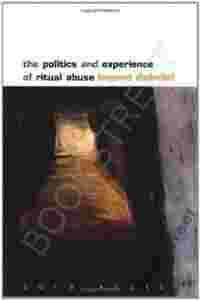|
"Sara Scott's book is a very powerful work, not only in terms of the subject matter and the politics of intense violence and violation that it explores, but also as a commentary on methodology and the nature of power. She thus contributes to the empowerment of survivors and the breaking of closures on debate and intervention." - Professor Jeff Hearn, University of Manchester, author of 'The Violences of Men'
"Through exemplary use of theory and research Scott's analysis of ritual abuse moves forward key debates within feminism, therapy and social science more generally. This eloquent book confirms established sociological wisdom that great insights are produced from skilful research into boundary cases." - Lois Bryson, Emeritus Professor, Research Institute for Gender and Health, University of Newcastle, Australia
"...very carefully researched, argued and presented. It contains some very important, if highly shocking and disturbing material, which is handled in a highly sensitive way." - Professor Mary Maynard, Department of Social Policy and Social Work, University of York
"This book makes an important contribution to the existing literature and debate on ritual abuse, as well as to the understanding of gendered violence and abuse more generally." - Marianne Hester, Professor of Sociology and Social Policy, University of Sunderland
We live in an era characterised by contradictions, not least in relation to the issue of ritual abuse, which emerged as a social problem only to have its existence immediately challenged by a discourse of disbelief. While many academics have ranked amongst the sceptics in this debate Sara Scott is a sociologist who takes her respondents seriously - as well as acknowledging the interests and experiences which have shaped her own position. The Politics and Experience of Ritual Abuse offers insight into why ritual abuse has become such a contested issue, while enabling the reader to explore the meaning of 'ritual abuse' through the accounts of those who claim direct experience. Drawing on her research with adults, who identified themselves as survivors, the author argues that the wholesale dismissal of such accounts as 'false memories' produced by a 'moral panic' may be somewhat premature.
The Politics and Experience of Ritual Abuse has been written for anyone interested in the specific controversy over ritual abuse, including students and researchers in criminology, social work, sociology and women's studies.
|

